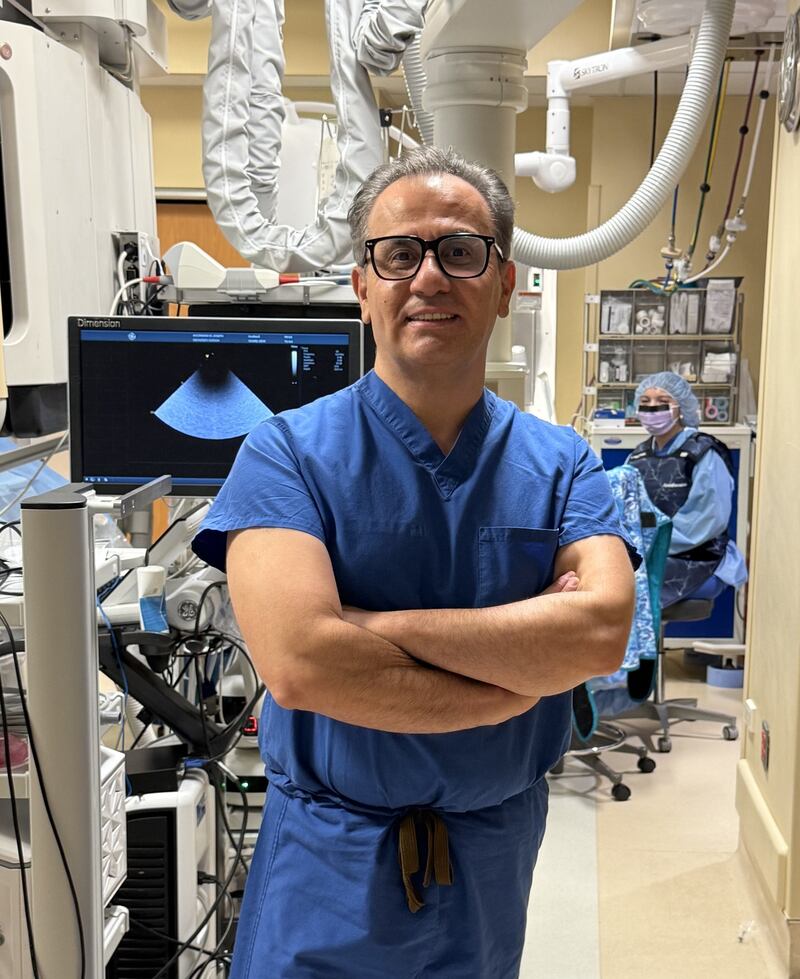A Joliet hospital is now offering a new technology in its cardiac catheterization lab.
In July, Saint Joseph Medical Center in Joliet, a member of Prime Healthcare, launched Pulsed Field Ablation, an advanced and safe treatment for atrial fibrillation and other cardiac rhythm disorders, according to a news release from Prime Healthcare.
Dr. Sunil Patel, chief medical officer for Saint Joseph Medical Center, said in the release that patients and the cardiology teams “love the new system,” making that “a big win for the hospital.”
“Saint Joseph Medical Center is one of the few cardiac programs in the region that currently offers PFA for its patients,” Patel said in the release.
Dr. Ahmad Abdul-Karim, a Joliet electrophysiology cardiologist, said in the release that PFA is “next-generation technology that offers a safer, faster, and more precise approach compared to traditional methods.”
Northwestern Medicine was the first hospital in Illinois to offer PFA when it performed its first procedure on March 5, 2024.
How PFA works
Most hospital cardiac catheterization labs still use radiofrequency ablation (RF) to treat electro-physiology issues, including tachycardia (racing heart), or A-Fib (irregular heartbeats), which may lead to heart failure or stroke if untreated.
According to Mayo Clinic, traditional ablation uses heat or cold energy, whereas the PFA catheter therapy uses “short bursts of high energy” also called “irreversible electroporation.”
These short bursts of energy provide a “heart tissue-specific approach to ablation,” according to Mayo Clinic, which helped pioneer the PFA research.
Why that matters
Because PFA “is far more selective of the cardiac tissue it is treating,” the chances of injury to the esophagus, cardiac tissue and phrenic nerves, “which run down the neck and control one’s diaphragm and breathing,” are decreased, according to Prime Healthcare.
The risks of perforations in the heart are also lessened, according to Prime Healthcare.
“Clinical data has specifically shown that PFA provides lower rates of nerve injury, cardiac tamponade, a condition in which fluid collects in the sac around the heart and constricts it, or pulmonary vein stenosis, in which the veins carrying oxygen-rich blood from the lungs to the heart become narrowed or blocked,” according to Prime Healthcare.
And because PFA is typically a shorter procedure than RF, patients are also exposed to less anesthesia, according to Prime Healthcare.

:quality(70)/s3.amazonaws.com/arc-authors/shawmedia/59304215-cb18-46db-bced-9941d9413236.jpg)